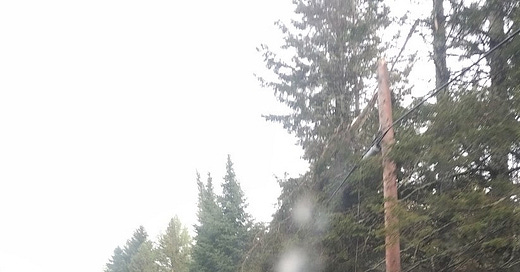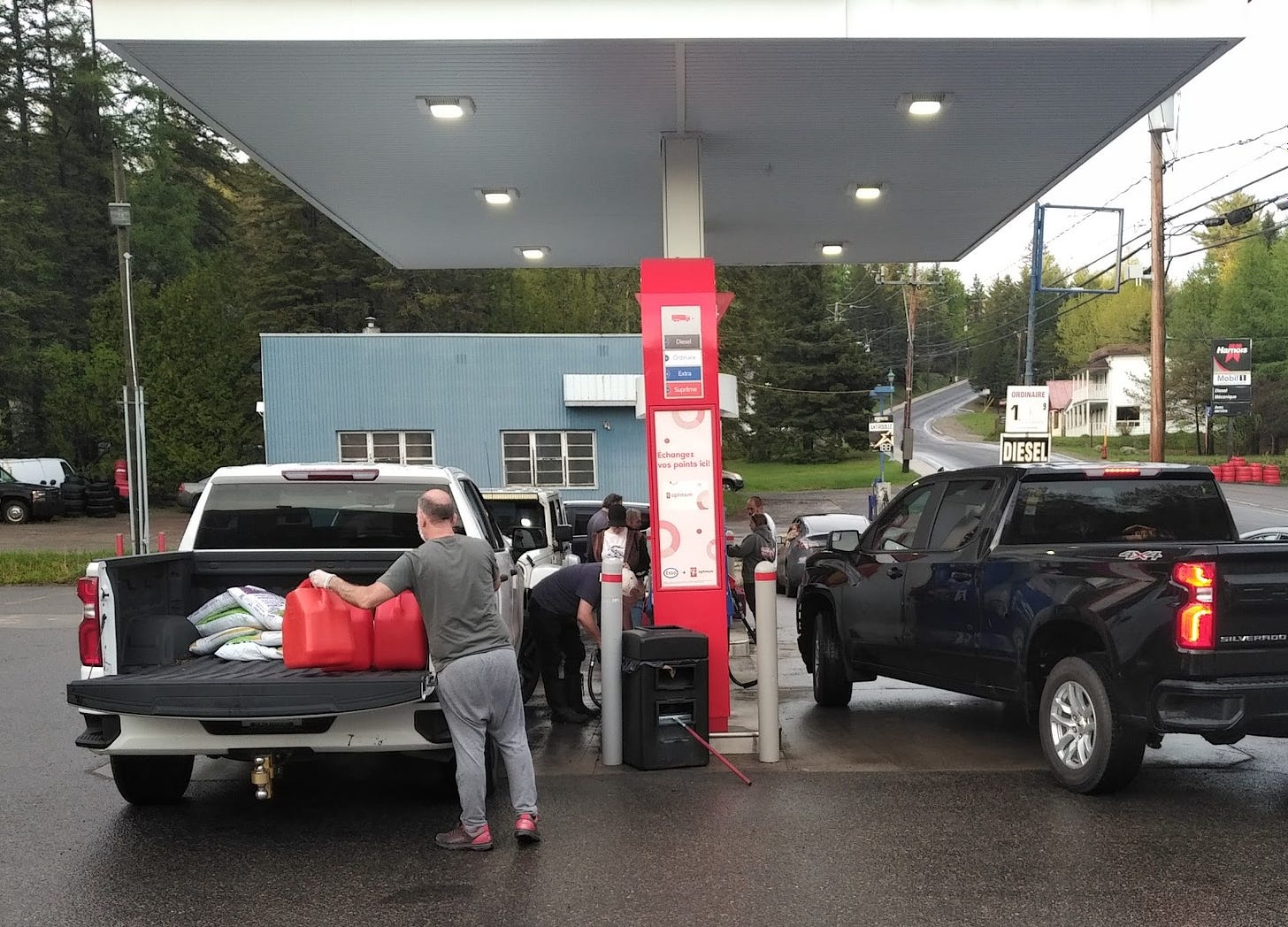DIE: Diversity, Integration, Energy
Resilience is unlikely to be the outcome of the "Electrification of Everything"
Electrification of Everything
On one hand we know that energy security is not an absolute but is maximized by a diversification of sources. Indeed, an increase in wind and solar decreases dependence on legacy generation methods – and whilst there is a mix (rather than a wished-for complete replacement), there is increased diversification and one would assume increased energy security.
On the other hand, we are being told that the path to the low-carbon future that we must have, is through the electrification of everything.
Electricity is not an energy source – but it is a critical and very high value (high utility) form of energy – it is no coincidence that electricity-use and development are strongly correlated.
This leads to a simple dichotomy: if energy security has been established through diversified sources, is a society that is all electric equally secure? It is probably worth addressing this question before we consider the much scarier case whereby we electrify everything and rely on 100% renewables. I’ll park that for the moment as I simply don’t believe it is possible.
Storm in May
On the 21st of May 2022, large swathes of Quebec and Ontario were hit by a summer storm. From where we were in the Laurentian hills (north of Montreal) we had a big thunderstorm and a bit of wind. The lights flickered and went out. With the electricity off we lost the kitchen – fridge, freezer and cooking white-goods – but we also lost access to water as our well’s water-pump is electric. Had this been winter the problem would have been worse as the well and pipes connecting to the house need heating via a copper resistor to prevent freezing.
We had planned to let my son practice driving, so with the power off at home and the sun breaking through we drove out of our little valley, to find a scene of devastation.
We quickly realized that this was not going to be a few minutes or even hours – for miles in every direction trees were down and with them all the power lines. In the end over 400,000 homes were affected and it took 6 days in our area, and closer to 10 days to reconnect the more remote locations. As we navigated fallen tress and electricity wires on the road, we headed to the nearest town to get supplies. By this time everyone was out with chainsaws and had already started the process of clearing up.
At the gas station, there was a queue of cars and trucks all with jerry-cans, filling everything they could with petrol. Fuel for transport, for generators and for chainsaws.
As a fine non-local and weekend warrior, I had chosen to get a set of electrical tools – including a modest chainsaw. You can probably see where this is going.
After 25 minutes of heroic action, I was out of juice and no chance of a recharge. Everyone else could keep working for days with just a few gallons of fuel. As I pondered on my now useless electric chainsaw, I wonder how EV drivers in the area were managing?
The outage was so big that linesmen (and women) came from all over Canada in their (diesel) trucks and worked 24/7 to get the power back. How would that have worked if everything was electrified?
To add insult to injury, sad to report that the very expensive battery I have for my green tools is showing a fatal defect after less than 20 recharge cycles. Now I am waiting on news of warranty and hopefully a replacement. Meanwhile, no work is getting done. This may just be bad luck, but I can see a need for petrol powered alternative tools in the very near future.
One could argue that had the power outage been a shortage of petrol (gasoline) – the situation would have been reversed, with electricity saving the day and over reliance on fossil-fuels being the issue. Indeed, the likely gas shortages in Europe this coming winter will be a manifestation of this. But the reality is that we have had decades of uninterrupted and cheap hydrocarbon fuels – as well as equally reliable and cheap electricity. Having both is a critical form of energy security.
Unintended Consequences
In the drive for ever greater electrification not only do we minimize the way in which this will reduce energy security, but we can find unintended consequences.
There is considerable debate in Norway, and indeed in the Europe that is increasingly dependent on importing green hydro electricity from Norway, about the consequences of these exports. Meredith Angwin has coined the “Fatal Trifecta “ – with “Reliance on your Neighbors” being one leg. On the face of it, having interconnectors makes sense. Norway can import electricity (and use less of its hydro) when it is windy in Germany and/or the UK, and when it is calmer, the UK and/or Germany can import hydro. In reality, the rush to “transition” has left both the UK and Germany without sufficient reserve margins in times of low wind and the interconnectors have become rather more one-way than planned. As these are commercial relations – the operator looks for price signals and supplies power to the highest bidder. Consequently, local Norwegian customers get outbid by increasingly desperate neighbours. Prices in southern Norway have increased by a factor of 10x, and the strong export demand coupled with a dry summer has led to worryingly low levels in the reservoirs. The business model ensures that hydro plants are run to maximize profit, and not with any consideration of long-term (local) energy security. At some point energy will become thought of as a utility, a common good, and not as a commodity. There will be more pain before we get there though.
Meanwhile, in a drive to “decarbonize” oil and gas production, Norway has had a policy for many years of encouraging offshore oil and gas projects to use the green hydro-electricity via long cables running offshore to the platforms – as an alternative to the massive diesel/gas gen-sets traditionally used on remote platforms. The emissions related to the production of oil and gas are thus reduced and everyone can try and appease the environmental lobbies with their “lowest Co2/bbl” metrics. Not that anyone cares. Its still oil and gas production. Appeasement is a terrible policy.
So what happens when the reservoirs start to run dry and electricity is to be rationed? In the first instance the operating costs of the O&G platforms increase, but more significantly, prioritizing electricity supply to households in winter for heating could lead to rationing to industry.
There is a terrible irony in the possibility that some of Norway’s gas production could be reduced or halted this winter due to electricity rationing. If this happens it would come at the worst possible time for a Europe starved of gas and desperate for Norwegian supplies.
Similarly, in the Texas blackouts of winter 2021 there was a vicious cycle of “unintended consequences”. Understandably, when gas supplies become limited for whatever reason, priority of gas supply is given (by the pre-existing rule book) to retail customers for heating. This mechanically reduced gas-supplies to electricity generation plants – at exactly the time that they were being asked to ramp up production due to low wind and high demand. To complete the vicious circle, we have to go back a few years to the ESG demands to reduce the Scope 1 emissions of production. Many wells in Texas are pumped and have electrical control systems – in earlier days, onsite generation of electricity using diesel or fuel-gas was common. Just like in Norway, this was progressively being replaced by grid electricity – an easy win in the decarbonization of production.
As Bloomberg put it : “A Giant Flaw in Texas Blackouts: It Cut Power to Gas Supplies. Power plants needed natural gas, but natural gas needed power. A vicious cycle left producers unable to supply gas in crisis”
So when the industrial use of electricity was rationed, gas producers were negatively impacted. With hindsight (which is always easy) this is a bit of a “No Duh” moment.
These are examples of how electrification of O&G supplies can be counter productive, and one could argue that this will be irrelevant when we no longer use O&G. However, the point here is that “fixing” bits of a complex system always have unintended consequences - and we are trying to “fix” the most important and most complex system we have. So please don't focus on the examples, but on the idea.
Many Eggs, Many Baskets
The Electrification of Everything will have unintended consequences as we reduce diversity in our ability to manage nature. We can still achieve much decarbonisation by increasing low-carbon electricity supplies and electrifying many parts of the economy but this should be backed by coal, oil and gas alternatives - for standby/emergency use. This will have has a cost, but this could be manageable. Conversely, the Utopian dream of 100% electrification will be less resilient. The same, backed by 100% wind+solar+storage, would be systemically much more unstable than our current system.
And that is without even thinking about what a Coronal Mass Ejection would do. For my next novel… hmm.







Excellent piece. An unreliable grid is a disaster waiting to happen, and it won't take much to make it happen. People need to know this.
I appreciate your first-hand story, and your broad-ranging research. A great combination.
Excellent piece with extra credibility from your experience. We may have to modify your “The Electricity of Everything” to include
the equally important broadband/Cloud.
How about “The Internet and Electricity of Everything”?
I look forward to your next novel.
Steve